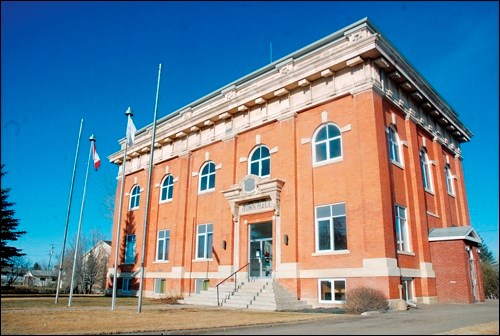Battleford town council meets only twice in the last two months of summer, so there was much to discuss at their most recent meeting, Monday.
Significantly for the many motorists receiving speeding tickets along the newly-twinned Highway 4, the Town introduced a bylaw that would allow them to return speed limits to their pre-construction numbers. The bylaw received first reading, and allows the Town to begin the process of changing the speed limits.
Passing the bylaw will not change the speed limit immediately. If construction is still ongoing as the speed limit is changed, there may be special construction zone speed limit signs, leading to larger speeding ticket fines. The town lowered the speed limits in the first place because it would keep motorists from getting hit with a larger construction-zone speeding tickets.
The town also received an interesting request from the Battlefords Union Hospital Foundation, requesting they auction off the naming rights to one of their streets at the 2012 Festival of Trees. While councillors noted that it was an innovative fundraising strategy and they support the organization, they refused the request as there was "historical significance in some of the streets, there's an overall plan" to their names. Town council decided instead to donate a $1,000 Opera House picture to be auctioned.
On the subject of the Opera House, the Town also awarded an Opera House consultation contract to Dean Bauche. Though this was technically a contract renewal, council used the opportunity to praise Bauche for the work that has been done so far.
"[Bauche] is doing a heckuva job, he's doing everything he said he'd do I think the Town is probably lucky to have him," said Odishaw.
The Town also took steps to address what has been a significant problem in past years: collecting money for utilities when people change addresses without having paid. Town administrator Sheryl Ballendine explained the town loses about s$6,000 to $10,000 per year in unpaid utility bills, even with the use of a collection agency.
The resolution adopted by council allows the town administrator to add unpaid bills to the tax roll, essentially making the utility the responsibility of the landlord. Though council currently has this power, council itself can easily miss the opportunity to add utility bills to the tax rolls. Giving the administrator the power to add amounts to the tax roll should make the process more efficient.
Some councillors, especially Bill Halewich, were skeptical about making utility bills the responsibility of landlords, but the resolution does not force the administrator to add amounts to the tax roll, it merely gives the administrator the ability to do so. Council thus passed the resolution, stressing debate on how exactly to implement it would continue.




